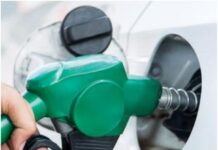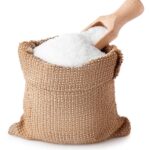Recently, concerns about ethanol-blended petrol, particularly its safety, potential engine wear, and eventual costs, have gained traction in some discussions. Critics argue that the use of ethanol blended petrol in vehicles has an adverse impact like mileage drop, engine damage, resulting in consumer dissatisfaction.
However, the bulk of evidence contradicts these fears.
E20, the most commonly available ethanol blend at the moment, is safe in daily use for nearly all vehicles and carries measurable advantages. Customers and the environment alike can expect higher octane ratings, smoother combustion, reduced greenhouse gases, and engines that can run longer with fewer repairs.
Road tests and kilometres logged on E20 run vehicles contradict the mileage drop fear. Yes, ethanol, with its higher specific oxygen content, carries a theory of lower energy content. Tests in real practice find an actual efficiency dip closer to 2 to 3% E20 blend; talks of a 30 to 35% drop in mileage and unfound and has no scientific base to it.
Fuel scientists remind us that the oxygen in ethanol not only adds octane but also promotes fuller combustion.
The lower blends, E10 or E15, result in almost invisible mileage differences, but what is important here to note is the innumerable benefits that this biofuel is bringing in making the country self-reliant in green energy, reducing dependency on fossil fuel, supporting the livelihood of the farmers and protecting the environment from harmful emissions.
Pricing and policy perspective
Some argue that even a small mileage dip should be offset with lower prices for ethanol blends. But such comparisons miss the bigger picture. India is moving towards E20 as the base fuel, which means pure petrol will eventually vanish from the market. Comparing its price to petrol that will no longer be available is irrelevant.
True, crude oil prices are currently on the lower side, but that is no guarantee for the future. Ethanol blending provides India with a hedge against volatile global oil markets.
Engine damage: A myth
Another persistent claim is that ethanol harms engines or corrodes vehicle components. This is a misconception.
Ethanol does not corrode engines. At worst, some rubber and plastic parts may have a slightly shorter lifespan, lasting 8–10 years instead of 10–12. The cost of replacing such components is in the range of ₹20,000–30,000 spread over a decade or more of use. For consumers, this is hardly a burden. Moreover, automobile manufacturers themselves confirm that ethanol does not cause serious wear or damage. The scare stories around ethanol harming engines simply do not hold ground.
The Octane advantage
If ethanol has few trade-offs, its single biggest attribute is its octane rating. Octane is a fuel’s resistance to engine knocking, a damaging condition that results from premature combustion.
Ordinary petrol in India is rated at 86–87 Octane. Premium fuels can push that up to 91 or higher, but only through the addition of chemicals such as benzene, toluene and xylene — items that aren’t especially good for engines or for the environment. Ethanol, on the other hand, has a natural octane rating of 107.
Mixed with petrol, ethanol increases octane without unhealthy additives. The result: smoother running, less knocking and longer engine life. For high-performance or luxury vehicles requiring premium fuels, ethanol blending is all natural & environmentally friendly.
The future: Flex Fuel Vehicles
Brazil’s close to 95% of FFVs on the road is a shining example. With lower GST rates, these vehicles could have been indigenously produced and run on Indian roads. Sure, FFVs may cost ₹2–3 lakh more than regular cars to begin with, but with policy support, economies of scale will ensure an early level playing field.
A victory for consumers, farmers and the planet
The ethanol programme is about more than just vehicles; it’s also about India’s future. Blending ethanol lowers oil imports, cuts emissions, helps farmers and offers consumers a cleaner and less expensive fuel option.
For further inquiries or to contact Uppal Shah, Editor-in-Chief, please send an email to Uppal@chinimandi.com.
















